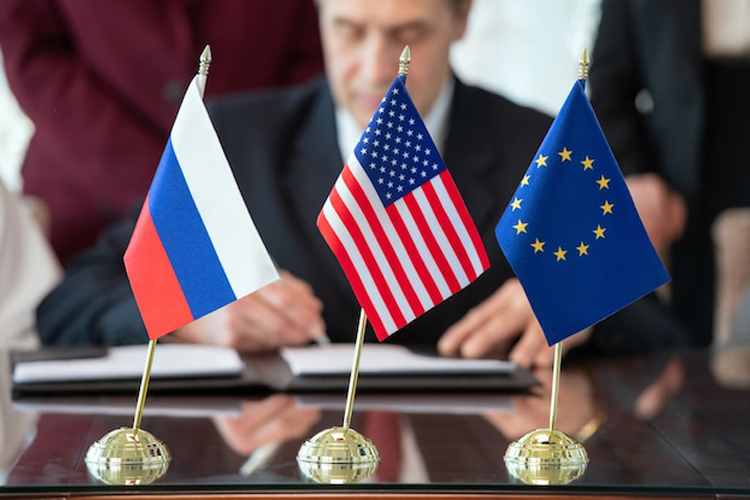The Unraveling of Arms Control: Russia’s Withdrawal from the CFE Treaty
In a move that has sent ripples through the international community, Russia has formally announced its withdrawal from the Russia NATO Arms Treaty on Conventional Armed Forces in Europe (CFE). This decision comes amid escalating tensions and a series of actions that have significantly deteriorated relations between Moscow and the West.
The End of an Era
The CFE, a Cold War-era pact signed in 1990, was designed to prevent the build-up of heavy weaponry in Europe, a measure to maintain peace and stability on the continent. It was a cornerstone of European security, aiming to create a balance of conventional arms between NATO and the Warsaw Pact nations. However, Russia’s recent departure from the treaty has been described as the final nail in the coffin for the agreement, which had been faltering for years.
NATO’s Expansion and Russia’s Concerns
Moscow’s formal exit from the CFE was justified by the Russian Ministry of Foreign Affairs as a response to the expansion of the US-led NATO alliance, which they claim has made the treaty untenable. Russia had previously suspended its participation in 2007 and halted active participation in 2015, citing similar concerns. The expansion of NATO has long been a thorn in Russia’s side, perceived as a direct threat to its sphere of influence and national security.
A Symptom of a Greater Crisis
This withdrawal is not an isolated incident but part of a broader pattern of deteriorating relations between Russia and the West. The full-scale invasion of Ukraine by Russian forces in February 2022 has led to the worst crisis in Moscow’s relations with the West since the Cold War. Kremlin spokesperson Dmitry Peskov’s remark that relations with the US were “below zero” underscores the gravity of the current geopolitical climate.
The Fallout of Non-Compliance
NATO has accused Russia of not respecting the terms of the CFE for many years. The alliance’s stance is that Russia’s war of aggression against Ukraine and Belarus’ complicity run contrary to the objectives of the CFE Treaty. This non-compliance has led to a tit-for-tat response, with the US and NATO ceasing the implementation of the treaty in relation to Russia.
The Nuclear Dimension
Compounding the tension is President Vladimir Putin’s revocation of Russia’s ratification of the Comprehensive Nuclear Test Ban Treaty (CTBT) and the test launch of an intercontinental ballistic missile. These actions have raised alarms about the potential for a new arms race and the erosion of the global arms control regime.
The Legal and Ethical Implications
The CFE was not just a treaty but a commitment to peace and stability in Europe. Its dissolution raises critical questions about the legality and ethics of military build-ups and the potential for conflict escalation. The lack of transparency and mutual trust that underpinned the treaty’s collapse is a troubling sign for international relations.
The Human Cost
Beyond the strategic and political implications, there is a human cost to the erosion of arms control treaties. The stability provided by such agreements has a direct impact on the lives of millions who live in the shadow of potential conflict zones. The uncertainty and fear that come with increased militarization cannot be overstated.
The Role of the Media
The media’s coverage of these developments plays a crucial role in shaping public perception and policy. The narrative around Russia’s withdrawal from the CFE and its implications for global security is complex and requires a nuanced approach that goes beyond the headlines.
The Call for a New Dialogue
The current situation presents an opportunity for a renewed dialogue on arms control and European security. It is a chance for both sides to come to the table and address the underlying issues that have led to the current impasse. The question remains whether there is the political will to engage in such discussions.
Conclusion: A Crossroads for Global Security
The blog post concludes by reflecting on the significance of Russia’s withdrawal from the CFE Treaty. It marks a critical juncture for global security and arms control, with the potential to redefine the balance of power in Europe and beyond. As the world grapples with these changes, the need for robust, transparent, and cooperative security measures has never been more apparent.



